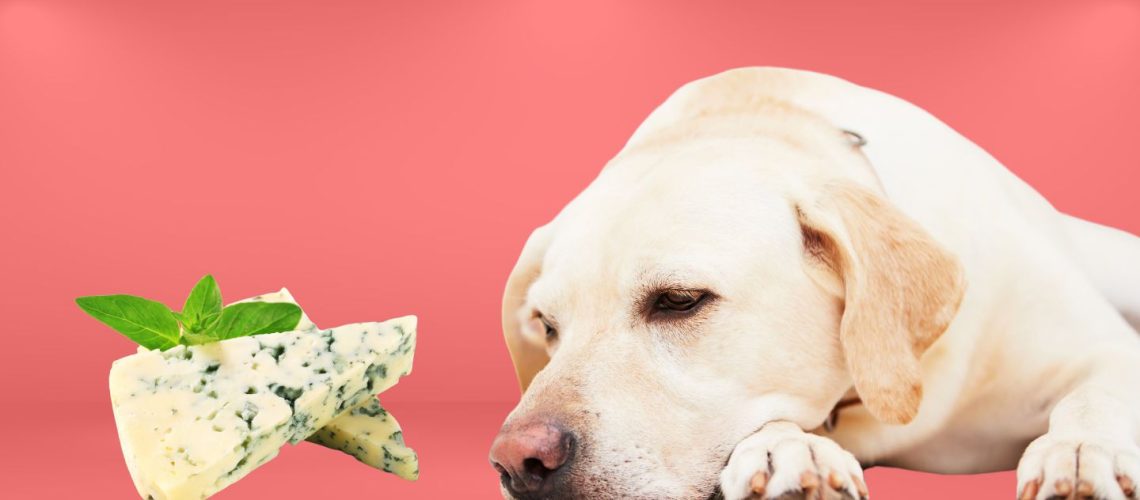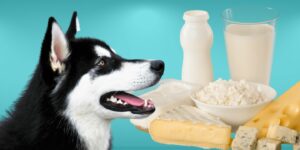The answer to the question of whether dogs can eat blue cheese is a resounding "no." This is because blue cheese contains the compound roquefortine C, and dogs are very sensitive to it. Besides that, most adult dogs are lactose intolerant, which means that consuming blue cheese can upset their stomachs. In this article, we'll provide an in-depth explanation of why blue cheese is harmful to dogs and what actions to take if your dog accidentally consumes this type of cheese.
What is Blue Cheese?
Production Process
Blue cheese is a type of cheese made using Penicillium mold, which is responsible for the blue veins that give the cheese its name. There are various types of blue cheese, such as Roquefort, Gorgonzola, and Stilton.
Nutritional Content
Blue cheese is known for its high-fat content, which can be unhealthy for dogs if consumed regularly or in large amounts. Moreover, it contains lactose, a sugar found in milk, which most adult dogs cannot digest properly.
Why Dogs Should Not Eat Blue Cheese
Roquefortine C Toxicity
The Penicillium mold used in blue cheese production produces a compound called roquefortine C. When ingested in large amounts, this compound can be toxic for dogs, causing symptoms such as vomiting, diarrhea, increased body temperature, and, in more severe cases, seizures. Long-term exposure to roquefortine C can even be fatal to dogs.
Lactose Intolerance in Dogs
Most adult dogs are lactose intolerant because they lack the enzyme required to break down lactose. As a result, consuming lactose-rich products like blue cheese can lead to gastrointestinal issues such as vomiting, diarrhea, and bloating.
How Much Blue Cheese Is Toxic for Dogs?
The toxicity of blue cheese depends on factors such as the dog's size and the amount of cheese ingested. If you suspect that your dog has consumed blue cheese, it is essential to monitor them closely for any signs of distress and contact your veterinarian if necessary.
Immediate Actions to Take If Your Dog Ingests Blue Cheese
At-Home Care
If your dog consumes blue cheese, closely monitor their behavior for any adverse reactions. Ensure your dog has access to fresh water and provide comfort as needed.
Seeking Veterinary Help
Contact your veterinarian immediately if your dog shows signs of illness after ingesting blue cheese. During the veterinary visit, the vet may conduct tests to determine the severity of the situation and suggest potential treatments and medications accordingly.
Preventing Blue Cheese Ingestion
To prevent your dog from ingesting blue cheese, store it away from their reach and train them not to eat human food. Communicate with guests and other household members about the importance of not giving your dog unsafe foods.
Safe Cheese Options for Dogs
There are several safe cheese alternatives for your dog, such as goat's milk cheese, cottage cheese, and mozzarella. Cheddar can also be given in moderation.
Additional Dog-Safe Treats and Snacks
Instead of blue cheese, you can offer your dog dog-specific treats and chews, lean meats like chicken and turkey, or fruits and vegetables such as carrots and apples.
Conclusion
Blue cheese is not safe for dogs due to the presence of roquefortine C and its potential to cause lactose intolerance. If your dog has eaten blue cheese, closely monitor them for any signs of distress and contact your veterinarian as needed. Always provide your dog with safe treats and snacks, and consult with your veterinarian if you have concerns regarding your dog's diet.











